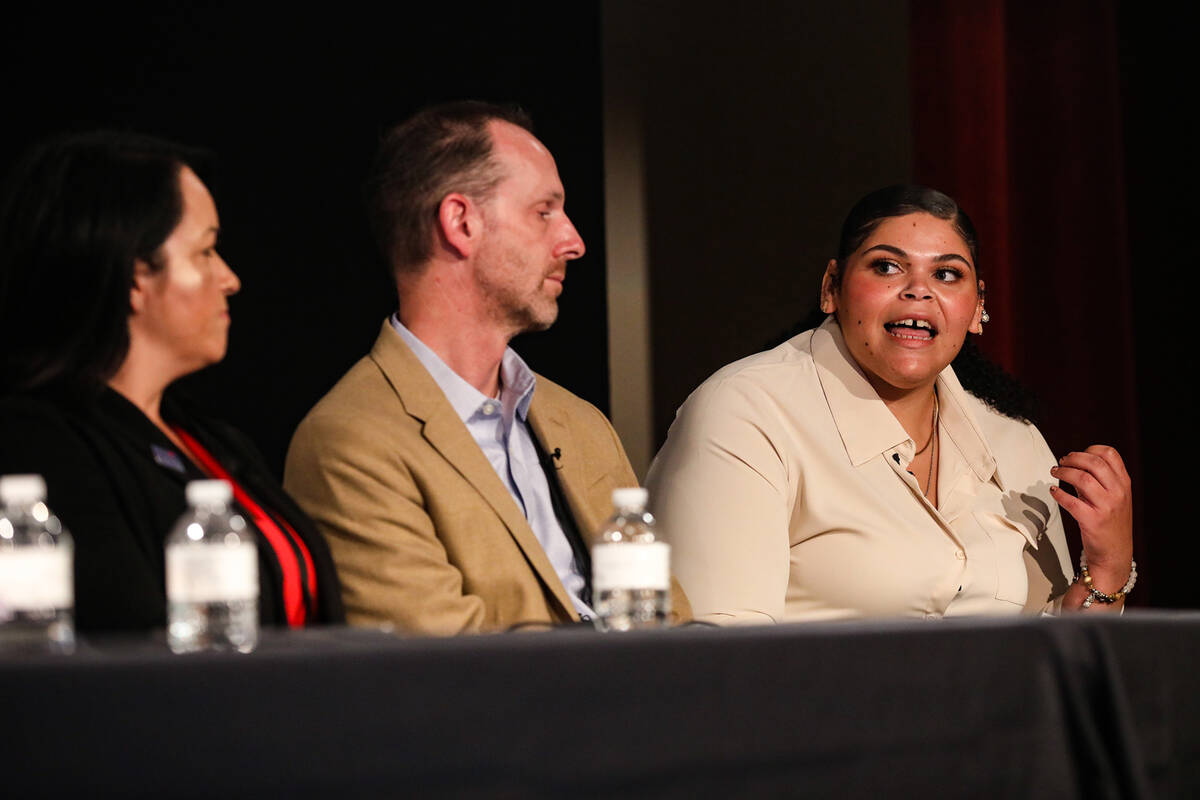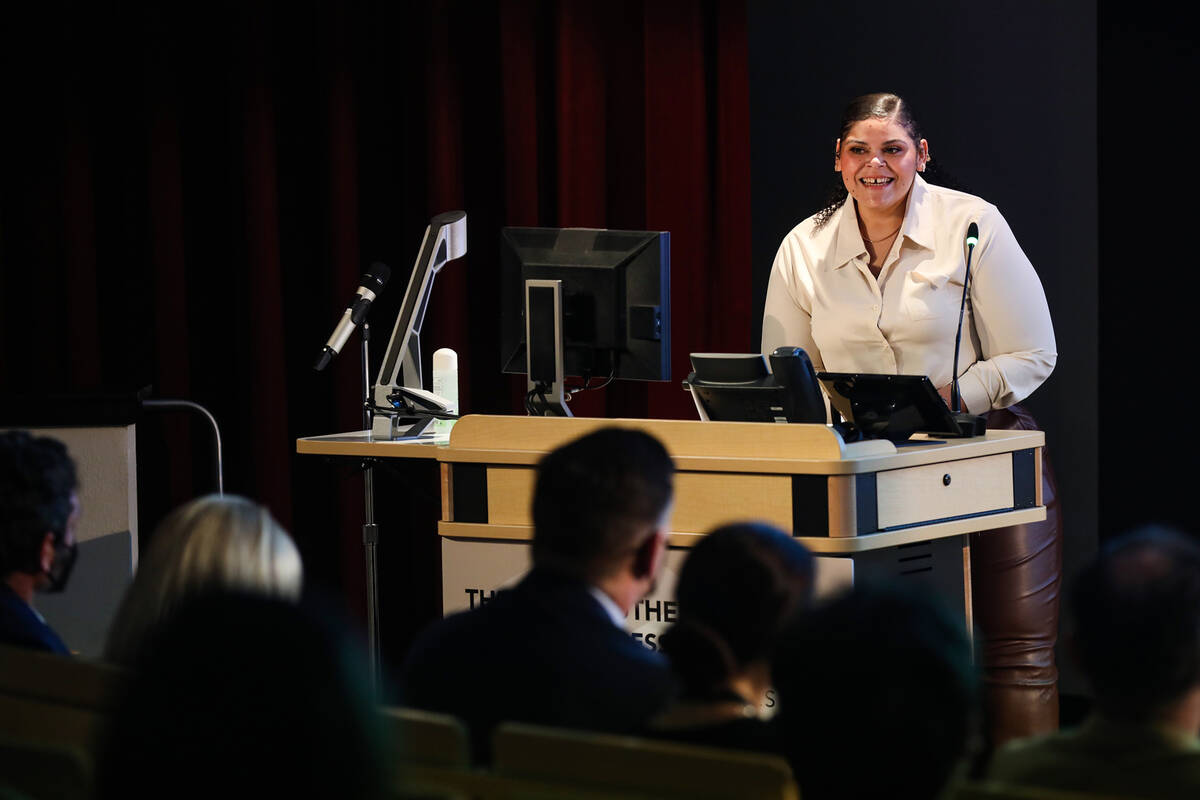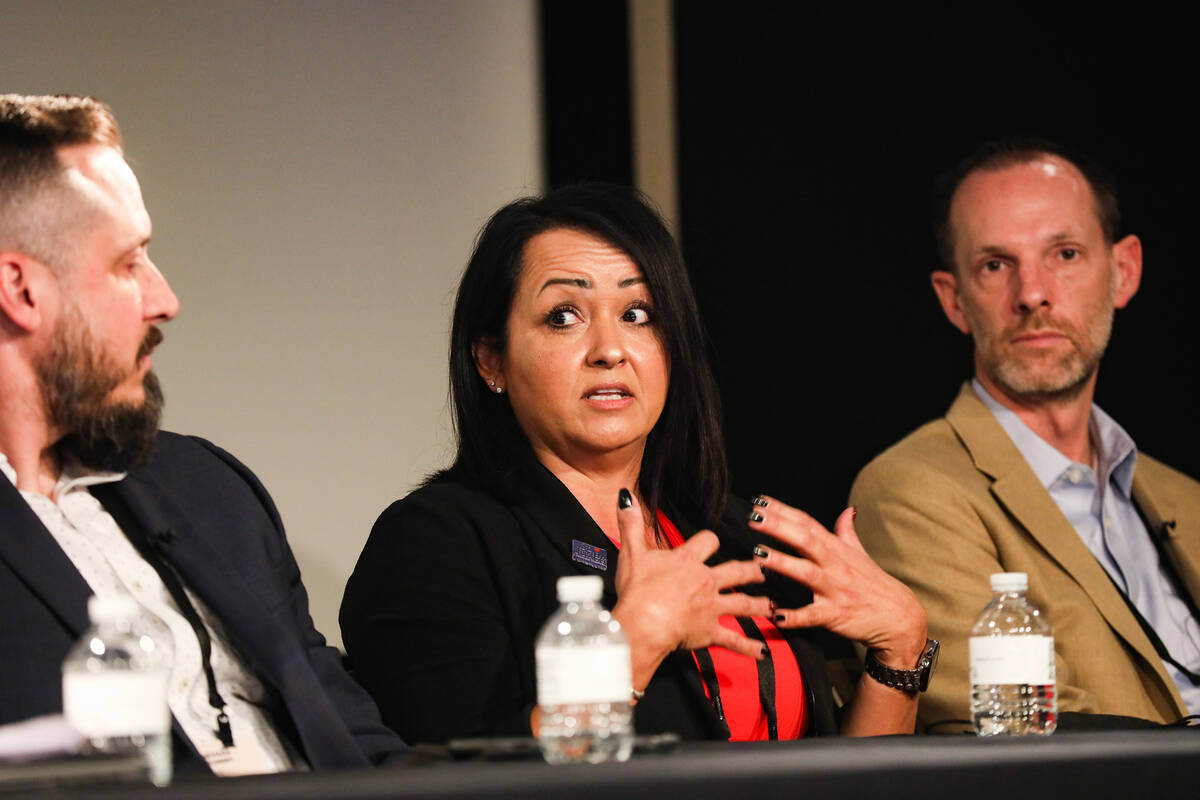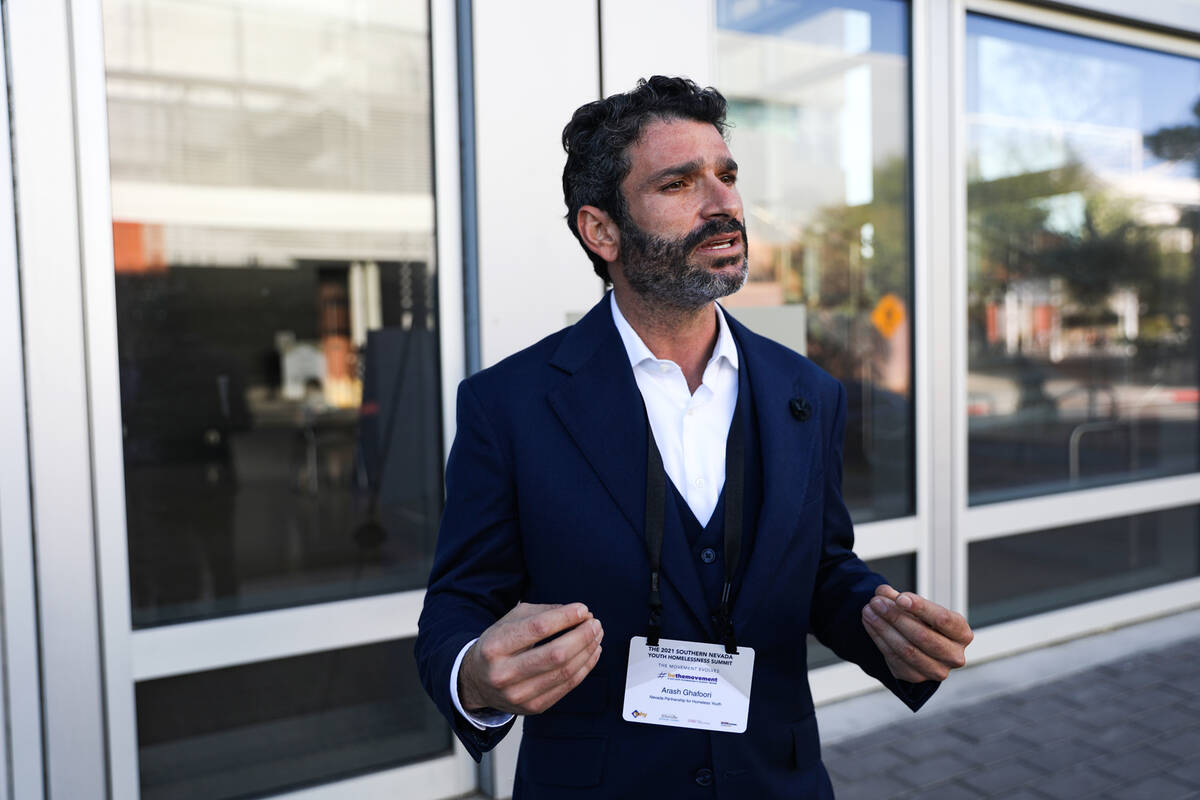Las Vegas homeless summit sees ‘historic’ chance to tackle problems
An influx of federal aid as a result of the pandemic could give organizations charged with combating youth homelessness a chance to address problems that need significant investment to fix.
“This is a unique opportunity, and I think everybody recognizes that if we screw this up, then we screwed it up for good,” Clark County Commissioner Justin Jones said Thursday at a summit designed to address the issue. “If we fix it, then that’s historic.”
The theme of this year’s summit, “The Movement Evolves,” highlighted the flush of federal aid dedicated to housing and health treatments as a result of the pandemic. In Clark County, officials dedicated $157 million of American Rescue Plan Act funds toward affordable housing, or about a third of the county’s allocation, Jones said.
In Nevada K-12 school districts, the act gave about $7 million to spend on homeless needs assessments, partnerships with community-based organizations, and supporting technical assistance and professional development on the subject, said Gabby Lamarre, the Nevada Department of Education’s Title I programs director.
“This is the exact time to think about how we evolve so we don’t go back to how things were, but we create a new paradigm on how we can work with our young people and eradicate youth homelessness quicker and sustainably in our community,” Arash Ghafoori, executive director of the Nevada Partnership for Homeless Youth, said at the summit.
The fifth annual conference was presented by NPHY and Sands Cares, the community engagement and charitable giving program of Las Vegas Sands Corp., with support from the Las Vegas Review-Journal and the UNLV Greenspun College of Urban Affairs.
There are 570 homeless youth per 10,000 unaccompanied youth, or someone under 25 years of age without a parent or guardian present, according to a 2020 homeless assessment report from the U.S. Department of Housing and Urban Development. That’s a decrease of 55.6 percent compared with 2019, based on a point-in-time count conducted annually.
Involve youth
Youth leaders at the summit highlighted how important it is to get their input and elevate them to opportunities where their perspective can inform decisions and policymaking.
Members of NPHY’s Young Adults in Charge, an advocacy group, pointed to recent legislation that they helped create and pass, such as Assembly Bill 197. The law allows minors to consent to certain health services for themselves without a parent or guardian. Their input also previously helped pass policy that made obtaining driver’s licenses and birth certificates easier for homeless youth.
“It’s so simple, but I feel like people make it harder than what it is,” said Theresa Butler, an outreach coordinator for Young Adults in Charge. “It’s just a conversation. But in order to have that conversation, you need to create space for you to feel welcome to be in that conversation.”
Being accountable
Butler and other youth leaders demonstrated that through a series of staged examples of what not to do. They included “tokenizing” a homeless youth, speaking over youth leaders in discussions, calling them “kid,” asking them to share stories of their trauma without hearing their suggestions for solutions and not fairly compensating them for their time and work. Being accountable starts with questioning why adult leadership acts in those ways, they said.
Butler, who previously experienced homelessness and is now a HOPE scholar working on a master’s degree at UNLV, said it’s a common problem for organizations to seek people to share personal stories for the wrong reasons.
“That has happened to me before,” she said. “They wanted me to talk about overcoming homelessness, mentally. When I was done with it, the director literally asked, ‘Why didn’t you cry?’ I’m just like, yep, this is not a safe place for me.”
Youth leaders also suggested a strong way to involve youth with experience in homelessness is to incentivize them through paying for their time and providing transportation or other needs to get them involved.
But homelessness is a unique situation for each person, and collaboration should fit the situation, said Taisacan Hall, champion of the Southern Nevada Youth Action Board and a member of Young Adults in Charge.
“Creating a safe and collaborative space for youth engagement will ultimately be defined by the youth that you work with,” Hall said.
The Review-Journal is owned by the family of Dr. Miriam Adelson, the majority shareholder of Las Vegas Sands Corp.
McKenna Ross is a corps member with Report for America, a national service program that places journalists into local newsrooms. Contact her at mross@reviewjournal.com. Follow @mckenna_ross_ on Twitter.




















